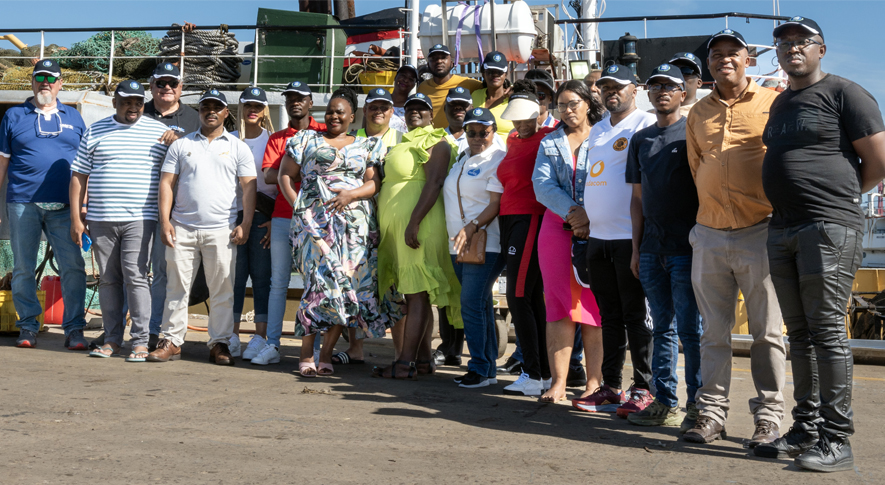
January-February 2024 — Per Erik Bergh (CEO and Managing Director), JD Kotze (Investigator) and Andréa Durighello (Fisheries Expert) travelled to Durban, South Africa, together with the Interim Project Management Unit (IPMU) of the SADC Fisheries Monitoring, Control and Surveillance Coordination Centre (MCSCC), to conduct a training on risk assessments of fishing vessels and operators.
This three-day visit was conducted as part of the project SADC Atlantic, a US-funded project of the SADC and the SADC MCSCC, which aims at supporting South Africa as well as the two other countries of the Benguela Current Convention – Angola and Namibia – to build their internal MCS capacities and develop strong engagement in the MCS regional centre, thereby contributing to regional efforts to stop illegal fishing.
Over three days, 20 participants from Durban as well as representatives from Cape Town, Port Elizabeth and East London, were provided with various instruments and recommendations to improve their work practices when dealing with fishing vessels and operators. While most of the participants were fisheries compliance officers (FCOs) the Department of Forestry, Fisheries and Environment (DFFE) of South Africa also expressed the wish to involve other agencies that play a critical role in addressing risks IUU fishing. An eye-opening opportunity for the representatives from the South African Maritime Safety Authority (SAMSA), police and customs, who have now understood the value of cooperation and the role they can play to support FCOs in fighting IUU fishing. To strengthen this cooperation, the participants recommended the elaboration and adoption of Standard Operating Procedures (SOPs), to facilitate interagency work. This will be one of the priorities that the project SADC Atlantic will work on.
As a next step, the objective is to continue putting into practice the learnings of those three days through ongoing coaching and mentoring, as the project team did with officers in Cape Town. This will include remote coaching in the conduct of inspections, thanks to a body-worn camera that was handed over to Durban’s fisheries inspectors by the US consulate in Durban during the meeting. They can count on the support of the SADC Atlantic team, but also on their colleagues FCOs in Cape Town, who have made significant progress in conducting risk assessments and inspections of foreign fishing vessels since the beginning of the project. “We feel that MCS is now given a priority”, said Ms. Buyekezwa Polo Mameila, Chief Marine Conservation Inspector in Cape Town, who came to share the experience from Cape Town and showcase examples of how regional cooperation through the MCSCC has been critical to address case of IUU fishing in their port.
An encouraging first step for stronger actions against IUU fishing in South Africa and in the region – concluded Maria Eulália Vales: “It’s our resources, it’s our waters. So, let’s come together to protect our future”.